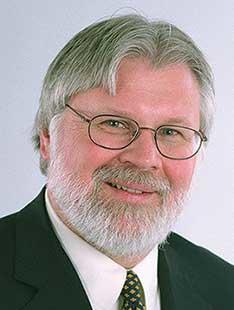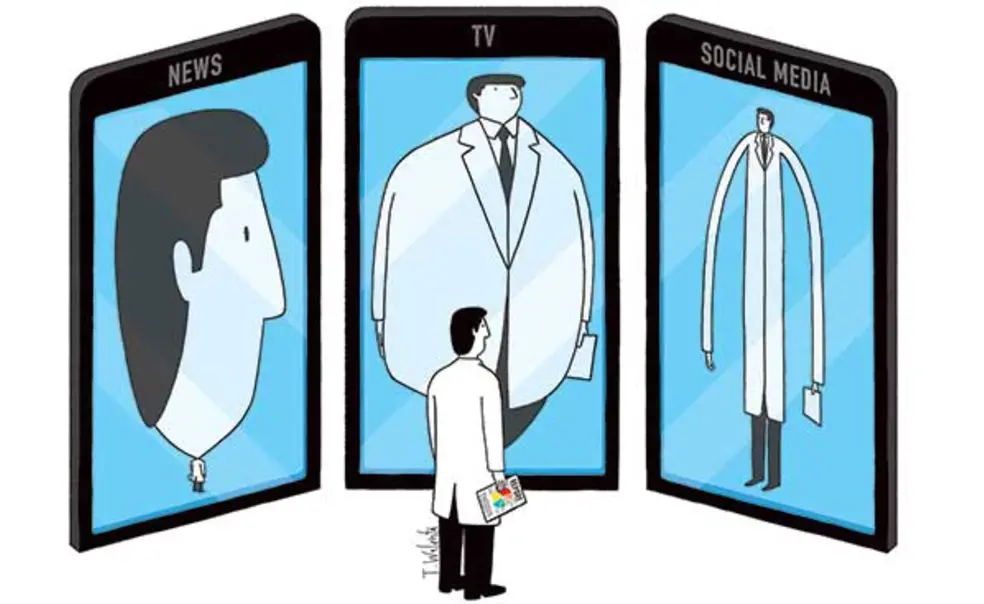Sociology and Public Affairs: How Facts Are Distorted
New paper explains how scientific facts become skewed in the age of information
There are a few facts about immigration that Douglas Massey *78, professor of sociology and public affairs, wishes every American knew. First: For 11 years, more undocumented residents have been leaving the United States than entering it.
Second: Most undocumented immigrants cross into the country legally, with a visa, and then overstay — in fact, apprehensions at the border are at a 40-year low.
But over a four-decade career researching immigration, Massey noticed that facts like these have little bearing on the public conversation. “There’s so much disinformation and misinformation in public circles,” he says.

The pair published an article in November in the Proceedings of the National Academy of Sciences documenting how the rise of cable TV and the repeal of the fairness doctrine in the 1980s enabled a new generation of ideologically motivated news channels — from Fox News to MSNBC — to replace mandated public-interest news broadcasts with ideologically motivated content. Ideological content flourished further as social media allowed misinformation to be shared with huge audiences. As an example from his own field, Massey points to a National Academies’ report on immigration, which was leaked before publication to Breitbart News, resulting in a story headlined: “$500 Billion Immigration Tax on Working Americans.”
Other websites and interest groups, like the Center for Immigration Studies and the Heritage Foundation, ran articles with similarly alarmist headlines, but in reality, the report had unsensational and nuanced conclusions. Immigration, it said, has the biggest negative impact on wages for previous immigrants, who hold many of the same jobs. And while state and local governments do face costs to educate the children of these immigrants, children who remain in the country will contribute more in taxes than either of their parents or the average native-born worker.
Such failures to spread the word about their results are common for “naïve” researchers, says Massey. “They think if they put together a clear press release and make a few clear interviews with NPR and The New York Times that that’s all it takes,” he says.
In reaction to these trends, last year the National Academies of Science, Engineering, and Medicine jointly announced a project to identify and counter online misinformation. Massey hopes its outcome will give scientists institutional support to fight falsehoods in ways individual scientists cannot. “Scientists all have day jobs, whereas, say, the Center for Immigration Studies has a fully paid staff whose only job is to get negative information out about immigrants and immigration,” he says. “Frankly, we’re overmatched.”












1 Response
Norman Ravitch *62
6 Years AgoInformed Misinformation
It has always been true that you could not fully trust information given out by authorities. This is true of religious bodies, political bodies, financial bodies, etc. Our governments lie continually and with purpose; so do political parties and candidates. The only difference Trump has made here is that his particular employment of deceit is the most unconcealed and uncovert we have probably ever encountered. Truth is fake news, lies are true truths.
All governments have always done this, and most people knew it. But with democracy the consequences are perhaps worse than in more authoritarian regimes, since with democracy people may come to believe they actually make decisions. Of course they do not; they are simply manipulated into thinking they make decisions, which are made by those really in control.
Churchill apparently said that democracy is the worst form of government after all the others. I am not convinced that it is better than all the others, since it is not really democracy at all. I think an elitist republic like early Rome, Periclean Athens, Venice at its height and perhaps Geneva after Calvinism declined might be better. Or a system where only some, not all, had the vote, depending on property, education, etc.; in other words, 19th-century European liberalism before the vote was given to every male. It baffles me that we have not got literacy tests for voters.
In France women did not get the vote til after WWII (yes, WWII!), because even the Left was against it, since it assumed that women would vote the way their priests directed! Men were less religious and clericalist and could be more trusted. Vive la difference!